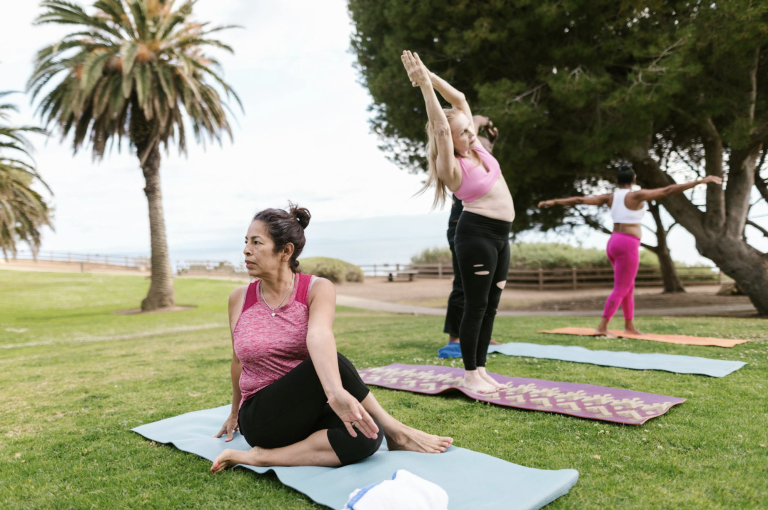Parkinson's Disease Management
Our rehab specialists of various disciplines work collaboratively and passionately to iron out issues with the client, their caregivers and family throughout this journey





Step Up On Mobility & Life!
When dealing with Parkinson’s, aim further than what you think they can achieve, quite literally, as the positive momentum will help greatly in motivating for a better stride towards improvements and higher quality of life
Read
Essential Frequently Asked Information
Rehab therapy doesn’t cure Parkinson’s, but it’s a powerful tool to manage symptoms and slow decline. Think of it like training for a marathon—you’re building resilience against the disease’s progression. Therapy helps rewire the brain through neuroplasticity, improving movement, speech, and daily function. While PD is progressive, consistent rehab can significantly boost independence and quality of life .
- Early stage: Focuses on building strength, balance, and voice projection to delay symptom progression. LSVT BIG (for movement) and LSVT LOUD (for speech) help maintain function before significant decline.
Mid-stage: Targets falls prevention, freezing episodes, and swallowing safety. Occupational therapists adapt daily routines, while physiotherapists work on mobility strategies.
Advanced stage: Prioritizes comfort and safety—like bed transfers or communication aids. Palliative rehab helps maintain dignity and reduces caregiver strain.
The key is starting early: research shows those in regular therapy reduce medication doses by 20-30% and experience slower functional decline.
PD often brings denial or apathy, but families can:
Reframe it as empowerment: Instead of “fixing deficits,” focus on goals like gardening or grandkid time. LSVT programs make exercises purposeful – e.g., BIG movements for reaching shelves.
Leverage community: Group sessions (like therapeutic singing) build camaraderie. Studies show peer support doubles adherence.
Start small: A 10-minute daily walk together feels less daunting than “exercise.” Celebrate tiny wins – like louder speech during dinner.
Families who join sessions learn cueing techniques, turning therapy into shared victories rather than chores .
- Physiotherapists (PT): Tackle balance, gait freezing, and falls. They use LSVT BIG to amplify movements (“make small steps BIG!”).
Occupational Therapists (OT): Redesign daily life—buttoning shirts, kitchen safety. They turn PT gains into real-world function.
Speech Therapists (ST): Needed when voice softens or swallowing risks arise. LSVT LOUD recalibrates speech to feel “too loud” as normal. ST joins early if voice changes occur (common in 90% of PD cases), while OT/PT collaborate when movements affect dressing or any activities of daily living .
It’s a constant dialogue:
Medication timing: Therapists sync sessions with “on” periods (when meds peak) for optimal movement. They alert neurologists if tremors worsen during exercise.
Data sharing: Balance tests (like Berg Scale) or speech recordings show doctors tangible progress, guiding medication tweaks.
Holistic alerts: OTs spot depression signs; STs flag swallowing risks—triggering faster specialist referrals.
This teamwork prevents gaps, like a missed dysphagia risk leading to pneumonia .
Picture two paths:
With rehab: John, 70, does LSVT BIG/LOUD yearly. He gardens, travels, and cut his Parkinson’s meds by 25%. His falls dropped 40% after PT’s balance drills.
Without rehab: Mary, 70, avoided therapy. She now uses a walker, chokes on thin liquids, and was hospitalized twice for falls. Her caregiver is exhausted.
Data shows rehab users halve hospitalization rates and report 30% higher life satisfaction. It’s not just movement – it’s sustaining joy in daily living.
https://pmc.ncbi.nlm.nih.gov/articles/PMC9357765/
https://www.neurology.org/doi/10.1212/WNL.88.16_supplement.S4.006
Why Choose Us
Lifeweavers is a multi-disciplinary therapy team of highly experienced rehabilitation clinicians consisting:
Occupational Therapists
Physiotherapists
Speech Therapists
Hand Therapists
Dieticians
Stretch Therapists
Specialised Massage Therapists
All the rehab therapy specialists you’ll need to assist in every step of the way on their recovery journey.
Discuss With Us
There is no case too simple or complex to approach us for – we are relevant to anyone looking for personalised, high quality, preventive minded healthcare
